Featured articles
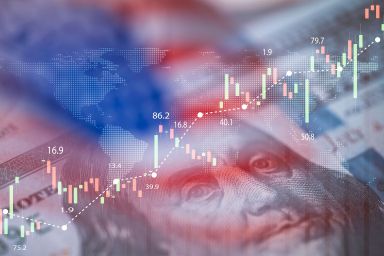
Why Michael Burry just sold all his tech stocks
Michael Burry has just exited a nearly $100 million position on Nvidia that he opened earlier this year.
14:42, 9 October 2025

Gold forecast: Third-party price targets
Gold (XAU/USD) is currently trading at $3,982.94 (as of 6:12pm UTC, 7 October 2025), after briefly crossing $4,000 per ounce for the first time during the session.
14:43, 9 October 2025

How does Elon Musk impact cryptocurrency prices?
In cryptocurrency markets, few individuals command as much attention as Elon Musk. The CEO of Tesla and SpaceX’s tweets, Tesla and Dogecoin announcements, and public statements can trigger periods of heightened volatility, with shifts in buying and selling pressure across digital assets.
13:29, 30 September 2025
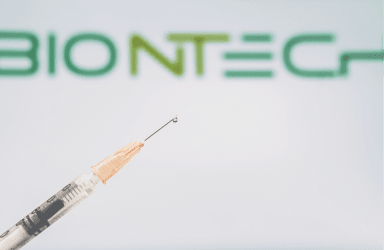
BioNtech stock forecast: Third-party price targets
BioNTech’s share price has moved through a wide range in recent years, influenced by developments across its Covid-19 portfolio, oncology pipeline and broader trends within the biotechnology sector.
5 hours ago
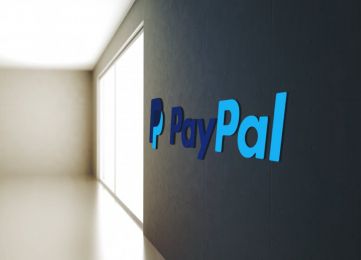
PayPal stock forecast 2025-2050: Third-party PYPL price target
PayPal (PYPL) was quoted at $60.89 on Capital.com’s Share CFD market at 9:43am UTC on 4 December 2025. The price sat near the lower end of its intraday range between $60.60 and $63.61. Past performance is not a reliable indicator of future results.
5 hours ago

Novo Nordisk stock forecast: Third-party price targets
Novo Nordisk’s share price has seen several shifts through 2025, influenced by company updates, developments across the wider sector and broader market conditions.
6 hours ago

Top 10 football clubs by market value and revenue
The value of the world’s leading football clubs extends far beyond matchday performance. Their financial results, sponsorship agreements and commercial operations provide a snapshot of how sport, business and global markets intersect.
6 hours ago
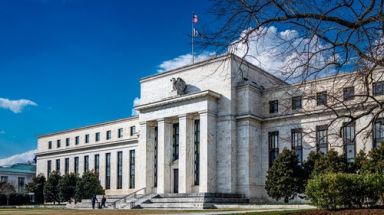
Market Mondays: Why a Hawkish Cut is still the Path of Least Regret
Markets tread with cautious heading into the Fed meeting this week, with focus on the revised projections into 2026.
10:57, 8 December 2025
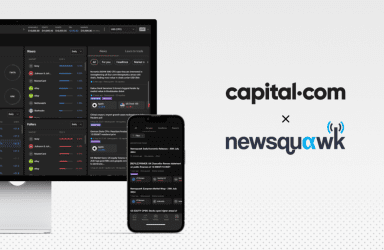
Discover Newsquawk: your integrated in-platform newsfeed
News moves fast — and so do the markets. With Newsquawk integrated into Capital.com, you can explore real-time headlines, detailed reports and tailored updates directly where you trade.
08:23, 5 December 2025

S&P 500-to-gold ratio: what it means and where it might go
The S&P 500-to-gold ratio provides a clear way to compare the performance of US equities with gold. By tracking how many ounces of gold are required to equal the value of the S&P 500 index, the ratio helps illustrate shifts in investor sentiment and the balance between risk and caution.
08:53, 2 December 2025

Market Mondays: December starts with anticipation as Fed expectations reign
Markets enter December with anticipation as the Federal Reserve meeting will be a key risk event, with changing expectations driving market volatility
14:14, 1 December 2025

Gold Awaits Fed Decision as Markets Brace for Crucial Policy Signals
Gold hovers around $4,200 ahead of the Federal Reserve meeting as traders await key insights.
9 hours ago

Market Mondays: Why a Hawkish Cut is still the Path of Least Regret
Markets tread with cautious heading into the Fed meeting this week, with focus on the revised projections into 2026.
10:57, 8 December 2025

Discover Newsquawk: your integrated in-platform newsfeed
News moves fast — and so do the markets. With Newsquawk integrated into Capital.com, you can explore real-time headlines, detailed reports and tailored updates directly where you trade.
08:23, 5 December 2025

Silver forecast: XAG/USD reaches new high, but positioning becomes overstretched
Buying appetite in silver has increased significantly this past week as several factors drive the momentum higher
09:39, 3 December 2025

EUR/JPY forecast: Third-party price targets
Euro / Japanese yen (EUR/JPY) is trading around 180.63 as of 1:26pm UTC on 4 December 2025, moving within an intraday range of 180.46–181.36 on Capital.com’s forex CFD feed. The pair continues to trade near levels seen around 181.3 in recent sessions, broadly in line with external spot benchmarks that have also held close to the 181 area. Past performance is not a reliable indicator of future results.
2 hours ago

EUR/TRY forecast: Third-party price targets
Euro / Turkish lira (EUR/TRY) was quoted at 49.68 as of 11:58 on 4 December 2025 (UTC) on Capital.com’s feed, trading near the upper end of its intraday range between 49.21 and 49.70. Past performance is not a reliable indicator of future results.
2 hours ago

Market Mondays: Why a Hawkish Cut is still the Path of Least Regret
Markets tread with cautious heading into the Fed meeting this week, with focus on the revised projections into 2026.
10:57, 8 December 2025

Discover Newsquawk: your integrated in-platform newsfeed
News moves fast — and so do the markets. With Newsquawk integrated into Capital.com, you can explore real-time headlines, detailed reports and tailored updates directly where you trade.
08:23, 5 December 2025

Bitcoin price prediction: Third-party outlook
Discover Bitcoin price projections 2025–2030 with third-party BTC forecasts, technical trends, price history, and CFD market sentiment.
16:44, 8 December 2025

Discover Newsquawk: your integrated in-platform newsfeed
News moves fast — and so do the markets. With Newsquawk integrated into Capital.com, you can explore real-time headlines, detailed reports and tailored updates directly where you trade.
08:23, 5 December 2025

Top crypto traders to follow by social media popularity in 2025
Influencers, analysts and developers use digital platforms to exchange ideas, interpret market trends and discuss the development of digital assets. As their audiences grow, these voices increasingly shape how information spreads and how trading discussions evolve across communities.
15:11, 1 December 2025

Choosing a digital wallet: the top five crypto wallets for 2025 and beyond
Before choosing a crypto wallet, it helps to understand what they are and why they matter. Digital wallets aren’t just places to store cryptocurrency – they’re essential for keeping private keys safe and managing access to digital assets.
11:10, 28 November 2025
